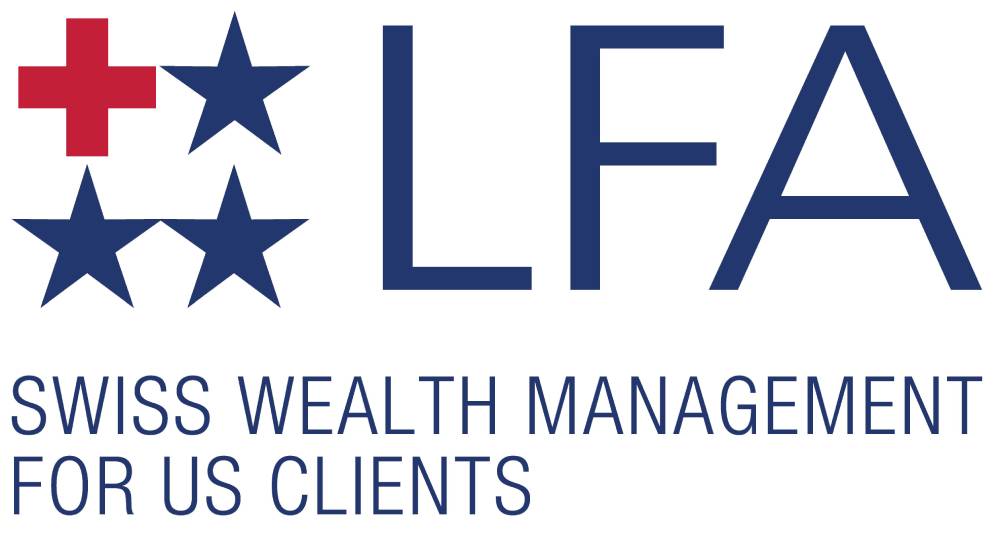For U.S. resident investors with $1 million or more in investable assets, diversifying a portion of your portfolio internationally through a reputable Swiss wealth management firm may offer access to global markets, currency diversification, and wealth preservation strategies. However, working with a firm outside the U.S. presents a unique set of considerations. These include investment performance, compliance, reporting, transparency, and trust.
Working with a Swiss wealth management firm licensed in the U.S. can offer access to global diversification and unique investment strategies. However, this decision should not be rushed. Selecting the right Swiss partner should complement your U.S.-based strategy, not complicate or duplicate it.
The right Swiss wealth manager can be a powerful addition in pursuing your long-term financial strategy. However, it’s important to ask the right questions and understand what answers to look for.
If you’re considering this strategy, our blog will cover five critical steps before hiring a Swiss wealth management firm.
1. Cross-Border Regulatory Compliance
Did you know that not all Swiss wealth managers can work with U.S. investors? This isn’t a gray area; it’s a regulatory requirement. The U.S. Securities and Exchange Commission (SEC) has strict rules about who can offer investment advice to U.S. residents, particularly when the advisor is headquartered in Europe.
Some Swiss wealth management firms are registered with the SEC, while others operate under specific exemptions (such as the Foreign Private Adviser Exemption) that limit their number of U.S. clients.
Questions you should ask a Swiss-based financial advisory firm:
- Are you registered with the SEC or operating under an exemption?
- Do you currently work with other U.S. residents?
- Can you handle the reporting of IRS and FATCA (Foreign Account Tax Compliance Act)?
Working with a Swiss wealth management firm experienced in U.S. regulatory requirements helps avoid potential tax issues or unexpected reporting obligations.
2. Custody and Tax Reporting Transparency
Swiss banking institutions are known for discretion, but transparency is essential when you’re a U.S. investor, especially when the issue meets IRS reporting requirements.
Ensure you understand where your assets will be held and whether the custodian is familiar with U.S. reporting regulations. Some Swiss firms custody assets with U.S.-friendly institutions that offer tax-compliant documentation, while others work with Swiss-based custodians that may require extra coordination with your CPA.
Key considerations:
- Will I receive tax documents compatible with U.S. reporting (e.g., 1099 equivalents)?
- How does your firm handle FATCA and CRS disclosures?
- Will you coordinate with my U.S.-based tax advisor?
The right firm will handle compliance and make it easier for you and your accountant to stay in sync.
3. Investment Philosophy and Global Access
High-net-worth investors often look outside the U.S. to gain access to global opportunities, especially in areas like private banking, international equities, alternative investments, and currency exposure.
Swiss wealth management firms may offer direct access to global markets and investment vehicles that U.S.-based firms may not focus on as much. However, access alone is not sufficient. You need a Swiss investment manager whose philosophy matches the pursuit of your financial goals and requirements.
Ask about:
- Their approach to risk and diversification across currencies and asset classes.
- Whether they manage portfolios actively or passively.
- What unique global strategies or asset classes can they offer?
Make sure their investment strategy aligns with, not competes with, your existing U.S. holdings.
4. Fee Structure and Conflicts of Interest
Fee transparency is essential when dealing with international wealth managers. In Switzerland, some firms still use retrocessions, kickbacks, or commissions from investment product providers, which may not be allowed under U.S. fiduciary standards.
You should expect complete transparency about how a Swiss financial advisor will be compensated, such as an asset-based or fixed fee arrangement. You should work with a firm that is paid by you, and not a third-party product provider. You want sophisticated advice, not a slick sales pitch.
Your due diligence should include understanding:
- Is the firm fee-only, or do they earn commissions on product sales?
- Are all fees, including asset management, custodial, and other fees, commissions, or transaction charges, clearly defined?
- Do they receive any compensation from third parties?
Transparent pricing builds trust and avoids surprises.
5. Communication Style and Cultural Fit
Hiring a Swiss wealth manager isn’t just about a portfolio management service; it’s about building a partnership. And like any long-distance relationship, clear communication is critical.
Some Swiss firms specialize specifically in U.S. investors and are staffed with English-speaking advisors who understand U.S. investments like IRAs, trusts, and other tax-advantaged accounts.
Others may be world-class investment professionals, but could be less familiar with your financial planning needs or expectations based on accessibility and service.
Here’s what you should ask:
- Who will be my point of contact, and do they speak fluent English?
- How often will we meet, and will meetings be in-person, virtual, or telephone?
- Does the firm understand U.S. estate planning, retirement withdrawal rules, and tax laws?
You’re looking for alignment in values, communication, service expectations, and relevant knowledge.
The LFA Difference
What sets LFA apart is our focus on serving U.S.-based investors who want access to the benefits of Swiss wealth management, without doing the work themselves.
Global diversification is an attractive strategy, but it must be done correctly. Our firm is built around a simple idea: combine Swiss quality and discretion with a deep understanding of U.S. tax laws, compliance standards, and client expectations.
LFA specializes in working with and servicing U.S. citizens living inside or outside the country.
We’re not just familiar with SEC regulations and FATCA reporting; we’ve structured our entire platform to align with the regulatory requirements of these agencies. That includes working with U.S.-friendly custodians, offering tax-compliant reporting, and directly coordinating with your CPA or estate attorney.
We also understand how wealth is accumulated, preserved, and distributed in the U.S., from IRAs and trusts to family offices and estate planning.
All of our advisors speak fluent English, are accessible when needed, and communicate on your terms, whether monthly check-ins or detailed investment reviews.
If you’ve considered international diversification but haven’t found a firm that understands both sides of the equation, LFA may be the right fit for you. We bridge the gap between Swiss sophistication and U.S. practicality, giving you access to global strategies without compromising trust, transparency, or compliance.


